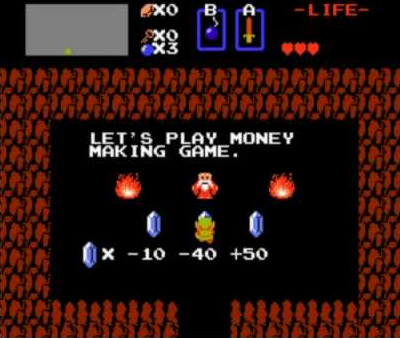“There are at least two kinds of games. One could be called finite, and the other infinite. A finite game is played for the purpose of winning, an infinite game for the purpose of play.”
-James P. Carse, Finite and Infinite Games
Thus begins James P. Carse’s philosophical work, for which this post is named – Finite and Infinite Games.
The very concept of finite and infinite games is one I continue to explore, and to have an improved understanding of, a yet it’s important to explore the topic before we proceed.
This will not be my last, nor my best, exploration of finite and infinite games.
So, for starters, it goes something like this.
There are at least two types of games, finite and infinite.
Finite games are games with known players, rules, boundaries, and objectives. The goal of finite games is to achieve a victory condition, and for an undisputed winner to be chosen.
Finite games are played for the purpose of ending play. As long as play continues, the contest has not been resolved.
Infinite games are different. They have both known and unknown players. The rules, the boundaries and other factors continue to shift for the central objective — to continue the game.
Finite games are played for the purpose of ending play.
Infinite games are played for the purpose of continuing play.
While most of the things we think of as games (checkers, football, poker, etc.) are finite games, most of the situations we find ourselves in throughout life are better thought of as INFINITE games.
They are pursuits without a victory condition. As author Simon Sinek asks, when does one “win” at the game of Geopolitics, business, or marriage?

As I approach my craft as a hypnotist, if my constant drive is to level-up and continue becoming a “stronger” hypnotist, until I exhaust my potential, then I am approaching it as an infinite game. Infinite games continue until the player “loses the will or resources to play.”
There could be a time when either I am not interested in continuing the “level-up the hypnotist” game (losing the will) or where further improvement becomes impossible because of advanced skill level, or because of personal limit or capacity (losing the resources).
It could be that that a larger game becomes apparent — a larger frame that includes the original game.
It could be that a Greater Game reveals itself.

We’ll come back to this discussion of frames and contexts later.
For now, let’s take a look at an example we’re now overly familiar with, the “search for objective truth” that we discussed previously.
Now, search-for-objective-truth game can be played as a finite game, wherein the victory condition is the “discovery of truth” and the rules are agreed upon, more or less, by the participants. And so to truly win this, as a finite game, there must be a point where play is stopped, the results are tallied, and the winner is declared.
And yet the only way to definitively do that – to declare a winner – is to compare the contents of a player’s “discovery” to … well, seemingly to “truth itself” … to see if they match, wherein lies the problem of approaching the search-for-objective-truth game as a finite game.
How do we “recognize” objective truth when we actually find it?
If the victory condition is having a model of reality that matches “actual” reality, the finite game cannot actually complete because the achievement of the victory condition cannot be witnessed by the players. It’s a shell game where you never get to lift up the shell.
I’ll suggest a remedy for this, but first, a diversion — back to my adventure of becoming the best hypnotist possible.
If I decided to hang up the role of the perpetual student of hypnosis, and it weren’t because the whole thing was swallowed up in a bigger, grander game — which we’ll get to later — and if it weren’t because of reaching my limit of advancement, than the likely conclusion is that I was playing the become-the-most-super-awesome-hypnotist-possible game as a finite game.
It could be that I had some list of criteria — various certifications and trainings and the like — and that I reached the end of my list. In this case, I was playing an finite game.
So then what? The money-making game? The surpass-all-competitors game? To what end?

I suggest a remedy — an alternative to this. Whenever you find yourself in a game, consider the possibility of playing it as an infinite game, and of whether you can envelop it in the context of one. Infinite games can contain finite games.
This crazy truth-quest can be played as an infinite game of exploring these models of discovery and seeing what good things we can make from them — and they don’t have to look much different than they do now. Discovering or creating a treatment or cure for cancer is actually a finite game, because there is an observable victory condition.
That’s quite different for “discovering THE cause” because that particular claim excludes the possibility of another cause, that there could be more than one player with claim to being the winner. In a finite game, that will not do. It suggests that all victory parties should cease immediately. It suggests that the game has not come to an end.
Played as an infinite game, science becomes a more lighthearted philosophy, always assuming that the latest “truth” will never be the last, and collecting treasures and achievements along the way. Victors can be crowned at milestones, like a mighty deed in the world of medicine or space exploration, keeping the little joys that finite games can offer, while recognizing that — sometimes — dragons rise again.
Regardless of whether you are in a finite game or an infinite game, one thing remains the case of either: play is voluntary. One who must play cannot play, because play is a voluntary act.
To decide that you are going to play a game as an infinite game means you get to decide on the rules, the boundaries, and the objectives of play.
A boring job can be treated as a finite game couched within the infinite game of “exhausting my potential for creation, positive experience, and well-being” … in which the new challenge surpasses the old challenge. It is no longer about getting to the end of the shift, so much as how you experience your time along the way, particularly when you are equipped with some of the technologies I will be sharing with you on this adventure.
A note about terminology. I’ll be using the word “technology” a lot. You can read this as “something that allows you to do something else” and you’ll be fine. Hypnosis is a technology, for example, although it doesn’t necessarily involve circuit boards and things like that (not that one needs circuit boards). Mind mapping would be another example.
There will be more about using games to help you level-up from your boring job, sometimes using the job itself to do it, but that’s beyond the scope of what we’ll be dealing with here. A point I’d like to emphasize is this: that by deciding to play the boring-job game as a game about feeling good, instead of a game about achieving a company objective, then you are in a position of power. And while one may need to do a thankless job from time to time, it is worth bearing in mind that the game of finances — consequential as it may be — is a part of the game of well-being, not the other way around.
So, going all the way back to the beginning, “feeling good” is perhaps the great infinite game for those of us that are animals. Everything else is done in the service of it.
In the spirit of infinite games, none of the above is complete, and there will be plenty more to explore. That’s probably what we need to move forward, though, to get to what’s ahead.
To bring it all together, and to continue advancing in the game of “feeling good” and “becoming more awesome” that you’re on, if you choose to be, I invite you to approach this life experience from the frame of the Great Infinite Game, and to do so with a sense of engagement and purpose. If you choose to, join me on this adventure and I’ll share my treasure with you.

So, before I wrap up this long-overdue and winding post, I have two parting gifts.
The first is a piece of what I might call a “gnostic technology” for your use. Whenever you find yourself in a situation that could be thought of us a game, ask yourself: (1) if it is a finite game or an infinite one?; (2) whether it could be played as an infinite one?; (3) if it is a finite game, what are the victory conditions?; (4) given the answers to the above, do you want to play this game?; and, finally, (5) if you are stuck on the game board anyway (more on this in future posts), can you reframe this game in terms of feeling good?
The second parting gift is something you’ve seen before, I’m afraid, but I wanted to present it again in case it has new relevance.
Once again, here is Alan Watts. He doesn’t use the term “infinite game” in his talk, and yet you’ll likely get a sense of how this “goes with” what we’ve been talking about.
It is my hope that it will help you to further engage in this big, crazy, game, with a greater sense of joy.
Also, see if you get a sense of the link between what Alan Watts is saying, and all my droning on about Nietzsche, the Ubermensch, and all that stuff …
Until next time, fellow Adventurers!!
